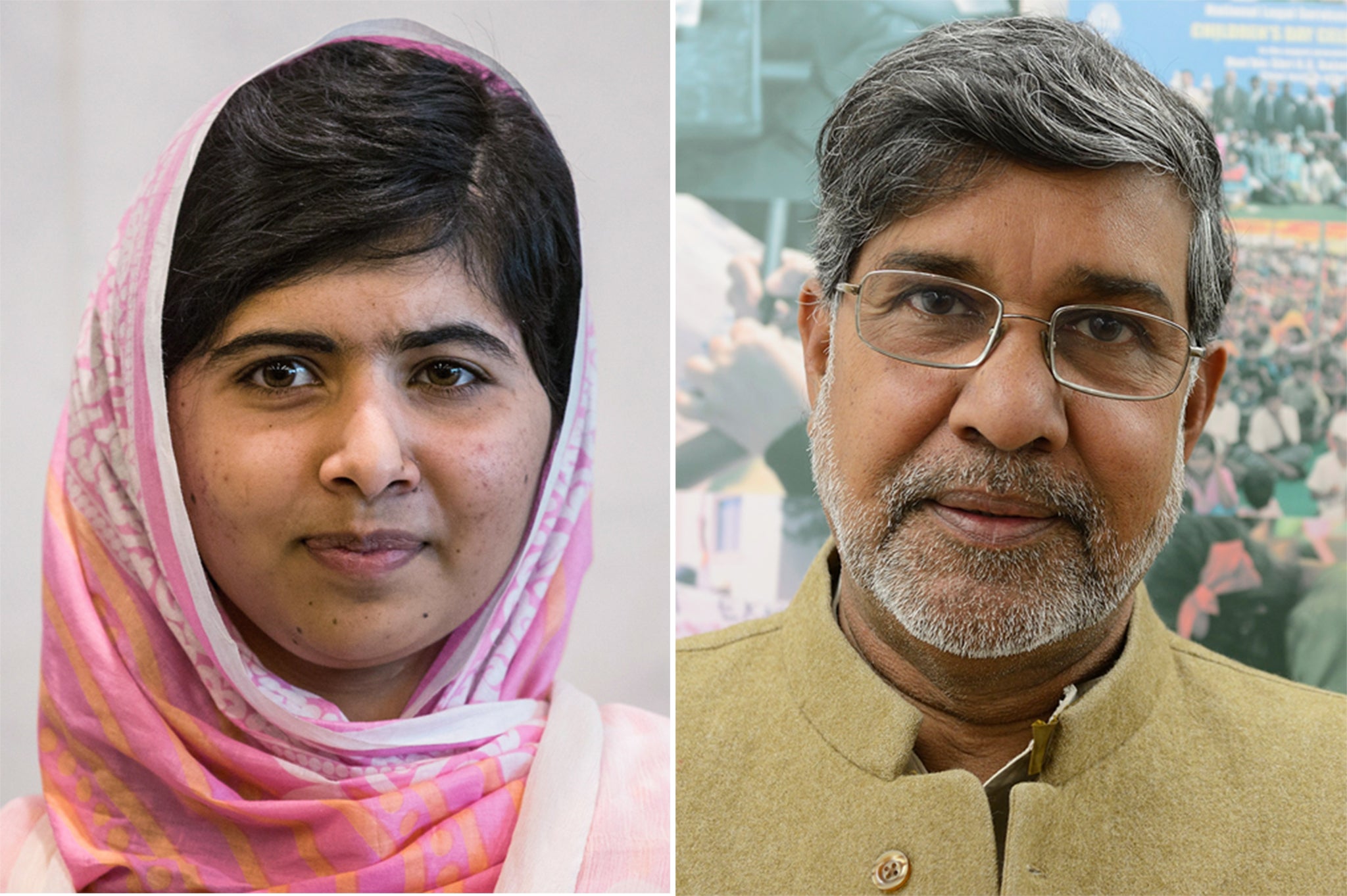Malala Yousafzai and Kailash Satyarthi win the Nobel peace prize
The young Pakistani campaigner for girls' education, Malala Yousafzai and Indian human rights activist Kailash Statyarthi have been awarded this year's Nobel peace prize.

Your support helps us to tell the story
From reproductive rights to climate change to Big Tech, The Independent is on the ground when the story is developing. Whether it's investigating the financials of Elon Musk's pro-Trump PAC or producing our latest documentary, 'The A Word', which shines a light on the American women fighting for reproductive rights, we know how important it is to parse out the facts from the messaging.
At such a critical moment in US history, we need reporters on the ground. Your donation allows us to keep sending journalists to speak to both sides of the story.
The Independent is trusted by Americans across the entire political spectrum. And unlike many other quality news outlets, we choose not to lock Americans out of our reporting and analysis with paywalls. We believe quality journalism should be available to everyone, paid for by those who can afford it.
Your support makes all the difference.The Nobel peace prize has been jointly awarded to 17-year-old Malala Yousafzai and Indian child rights campaigner Kailash Satyarthi.
The two were named winner of the £690,000 ( $1.11m) prize by the chairman of the Nobel committee on Friday.
The Norwegian Nobel Committee announced that she had been jointly awarded the prestigious Peace Prize together with Indian children's rights activist Kailash Satyarthi.
In a statement, the committee said: "Despite her youth, Malala Yousafzai has already fought for several years for the right of girls to education, and has shown by example that children and young people, too, can contribute to improving their own situations.
"This she has done under the most dangerous circumstances.
"Through her heroic struggle she has become a leading spokesperson for girls' rights to education."
Malala first came to prominence when she wrote an anonymous blog while the Swat valley was still under the control of the Taliban.
She was attacked in October 2012 while she and class mates were making their way to school in Pakistan’s Swat Valley. A gunmen fired three shots at her from close range, one of them entering her head and passing into her shoulder.
After emergency treatment by military surgeons in Pakistan, the schoolgirl was flown to the UK for further medical care and rehabilitative help. Her efforts as a campaigner for the rights of girls and young women to have access to full education have barely paused.
Malala has won the European Union’s human rights award, was named one of Time magazine’s most influential person in 2013, and was nominated for the Nobel Peace Prize last year.
Mr Satyarthi was described by the committee as a campaigner who had shown "great personal courage" in "maintaining Gandhi's tradition". They added that he has "contributed to the development of important international conventions on children’s rights".
Join our commenting forum
Join thought-provoking conversations, follow other Independent readers and see their replies
Comments